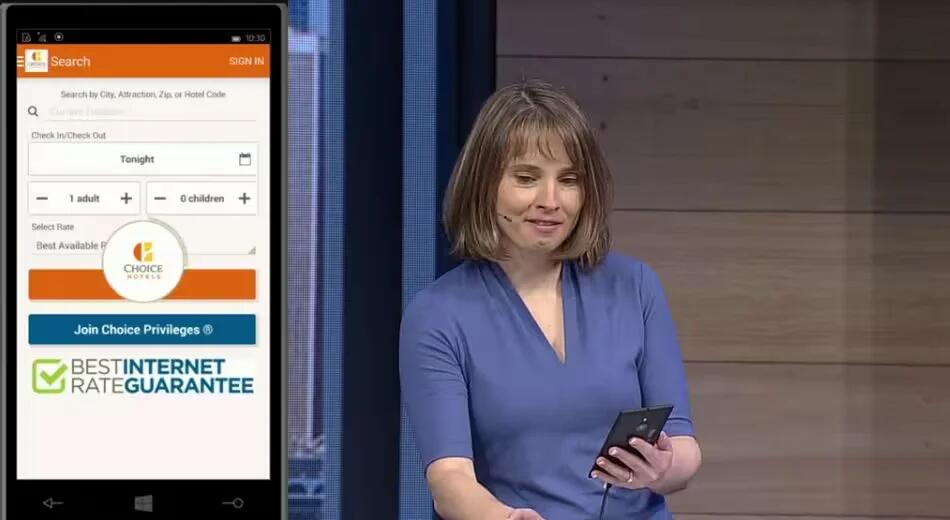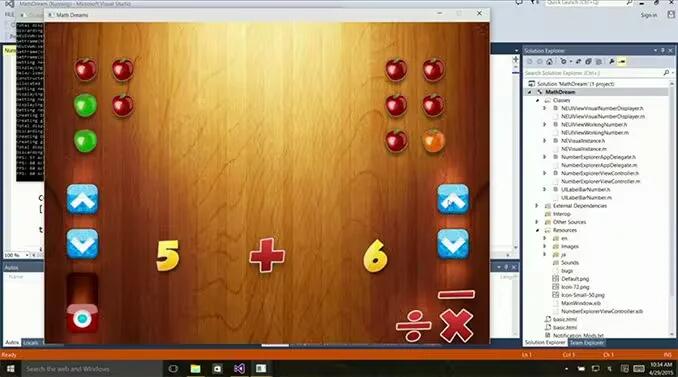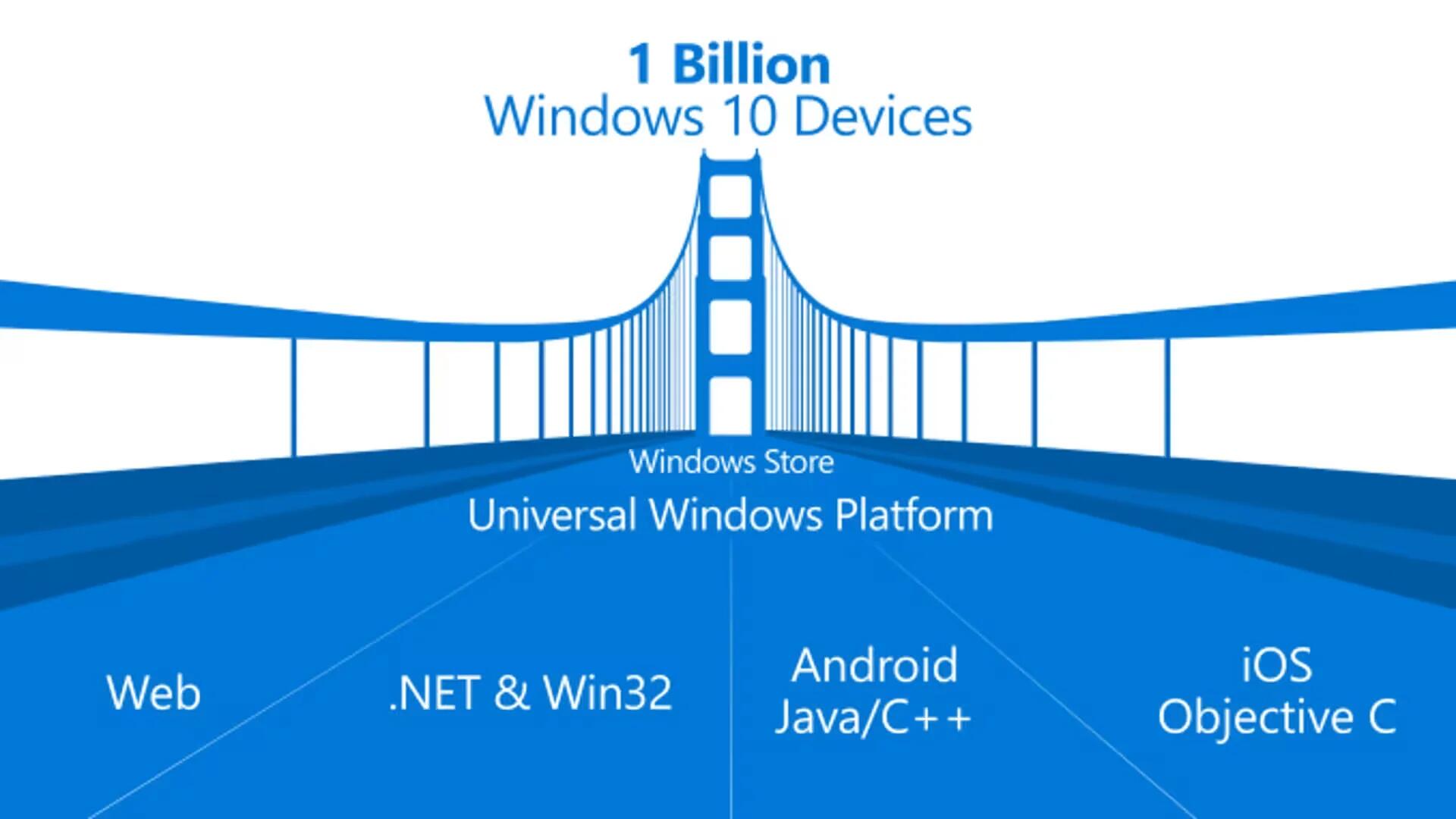Today at BUILD developer conference, Microsoft announces that Windows 10 will support running Android and iOS application.
Microsoft has monopoly over desktop operating system, but when it comes to smartphones, it struggles to make any notable impact. Today’s Microsoft BUILD developer conference was more focused on addressing the company’s shortcoming in Mobile space and introducing tools and technologies for developers to port their Android and iOS apps to Windows 10. This confirmed earlier rumors about Android apps running on Windows 10.
The first big announcement was Project Astoria, which enables support for running Android applications programmed in Java or C++ on Windows 10 phones. Microsoft says the Windows 10 will come with an “Android Subsystem” that allows Android apps to run natively on Windows and helps developers to bring their Android application to Windows 10 phones with minimal effort.
Unfortunately, there are some problems with this solution. Any application that use Google Play services or other services that are not part of AOSP (Android Open Source Project) will have issues, forcing developers to remove those features or find alternatives. Microsoft used “Choice Hotels” App to demonstrate Windows 10 ability to run Android apps. Although the app did run, it also had few issues; some are related to using Google Play Service like Maps and location.

The second announcement was Project Islandwood, which introduces a Visual Studio tool that aids in converting iOS applications programmed in Objective C to Windows 10 applications. Now developers can take their existing applications written in Objective C, have Visual Studio convert the Xcode project into a Visual Studio solution, and compile it for Windows 10. Microsoft also claims that Apps using UIKit and Core Animation compile fine as Windows 10 applications. To prove their point, Microsoft demoed a mathematics game with very complicated visual effects and animation, which uses UIKit framework and Core Animation.

Project Astoria, does not compile Android Apps to Windows applications, what it does is give Android developers a way to easily bring their apps to Windows 10 smartphones. While Project Islandwood, allows developers to create native universal Windows apps by using their existing iOS source code.
While Microsoft has no trouble in convincing developers to support their desktop OS, it struggles to convince them to support Windows Phones. With these two announcement, Microsoft had provided tools and technologies for developers to port their applications. Now it is up to the developers to support Windows 10 Phones. No matter what happens this will define the future of Windows 10 Phones and may end up having huge impact on Windows users and in smartphone market.
